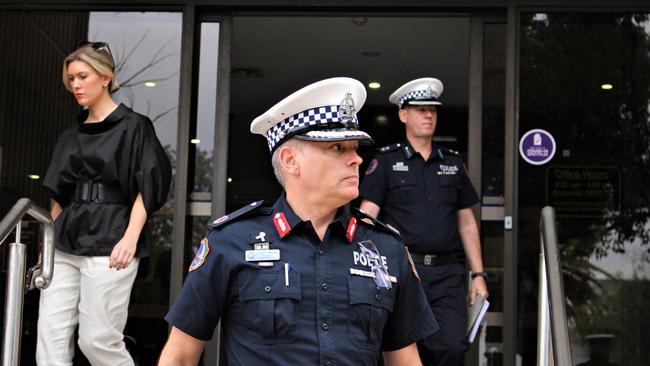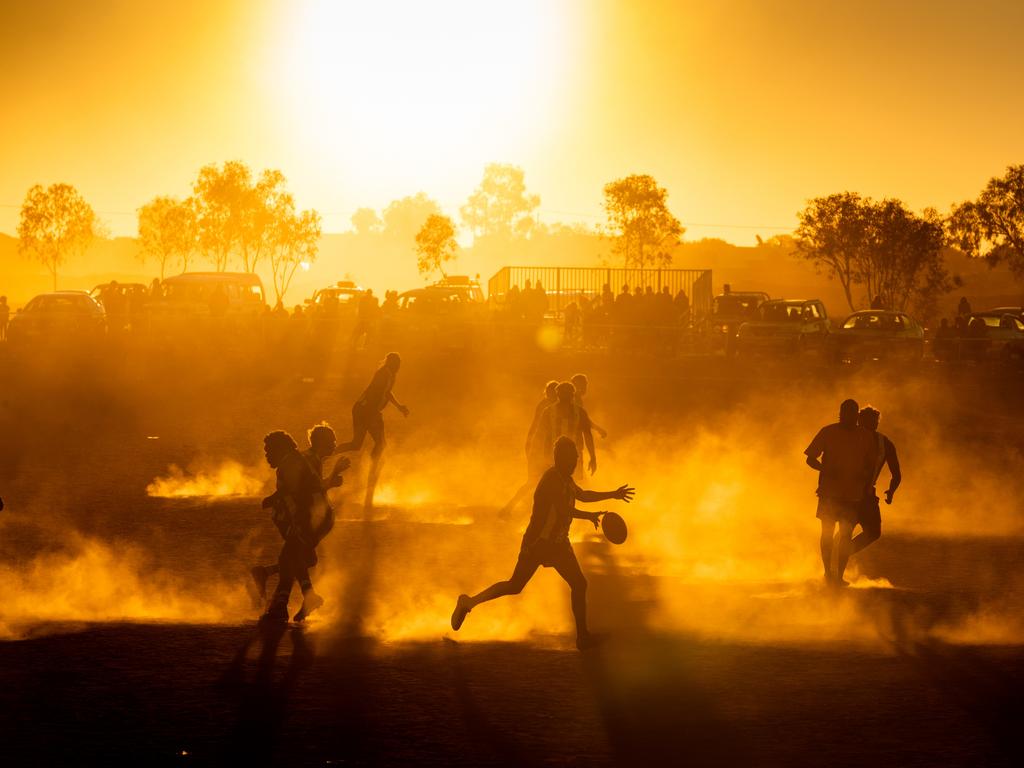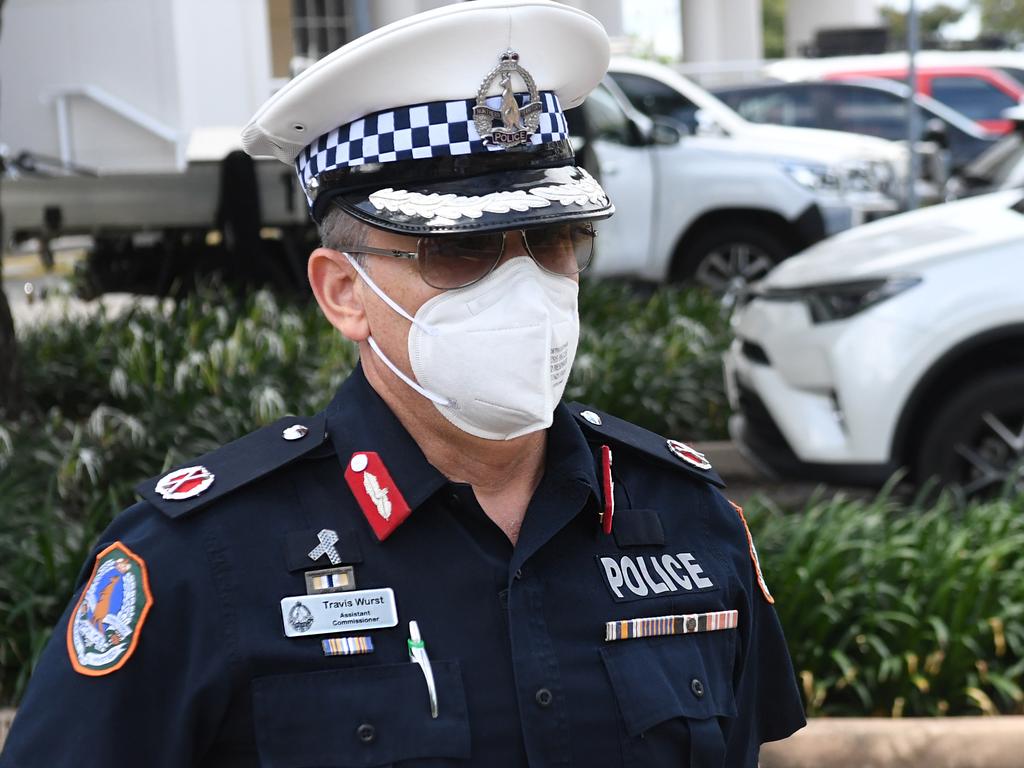Kumanjayi Walker inquest: Cop party days after death of Walker
A senior NT police officer agrees it was ’wholly inappropriate’ that the cop who shot and killed Kumanjayi Walker held a barbecue just two days after the Aboriginal teen died.

A senior Northern Territory police officer agrees it was “wholly inappropriate” that the cop who shot and killed Kumanjayi Walker held a barbecue at his home just two days after the Aboriginal teenager died.
At a coronial inquest on Monday, NT Assistant Commissioner Travis Wurst also revealed he had found out about the social gathering only on Monday.
Constable Zachary Rolfe was acquitted of murdering Walker, who died at Yuendumu on November 9, 2019, after he was shot three times during an arrest.
Counsel assisting the coroner Peggy Dwyer asked Mr Wurst if Constable Rolfe had broken the rules requiring members to be separated after a death in custody when he hosted some mates and colleagues from the Immediate Response Team who were also deployed to Yuendumu.
“What we now learn is that on the Monday evening after the Saturday night when Kumanjayi was shot, a social gathering occurred at Constable Rolfe’s residence. A statement had been taken from some members of the IRT but not from Constable Rolfe,” Dr Dwyer said.
“In that context, a social gathering involved Constable Rolfe, fellow police officers and some IRT members who had been in Yuendumu with him. That was wholly inappropriate wasn’t it.”
Mr Wurst responded: “In the context of that information, yes.”
He also agreed it had the potential to “contaminate” evidence, and when asked if any of the officers were disciplined for attending, he responded “no”.
“I only became aware of that this morning, so I’m not aware of any outcomes from that,” he said.
Mr Wurst authorised IRT members to support local Yuendumu police officers after nurses fled the community due to safety concerns. He said he approved their deployment as general duties officers, not as an armed tactical response unit in a high-risk operation.
Mr Wurst said he believed about 200 community members gathered outside the police station after Walker was shot, some with weapons, waiting for news.
Aboriginal community police officer Derek Williams was among those waiting to hear what had happened to Walker.
Mr Wurst defended his decision not to tell Walker’s family or Yuendumu community members, including Mr Williams, that Walker had died until after another incident response team had arrived at the police station at 1am on Sunday morning.
He said Senior Constable Chris Hand, who was attacked by Walker with an axe three days before the shooting, told him he had never been more “scared” in his life the night Walker was shot.
“I had to make decisions around the welfare of the police officers who were in that particular police station,” he said.
“I held the genuine concern … that there was serious risk of the community reacting violently against the police within that facility, and that the facility may be breached and the community members would try and enter the police station.”
He overturned a direction for officers to evacuate the community. “If police left that facility and … the community, that meant that there were no police within Yuendumu at all and that would leave that community extremely vulnerable,” he said.
“The broader consideration in that regard was then what the reaction would be for other remote communities across the Northern Territory, particularly in the central desert region and more broadly.
“If police left that community and the community, for example, were to take over the police station … what risk does that place all those other communities in as well,” Mr Wurst said.
Mr Wurst agreed the decision not to tell Walker’s family about his condition or death was extremely distressing, but said he feared family members and key community leaders might react emotionally or violently.





